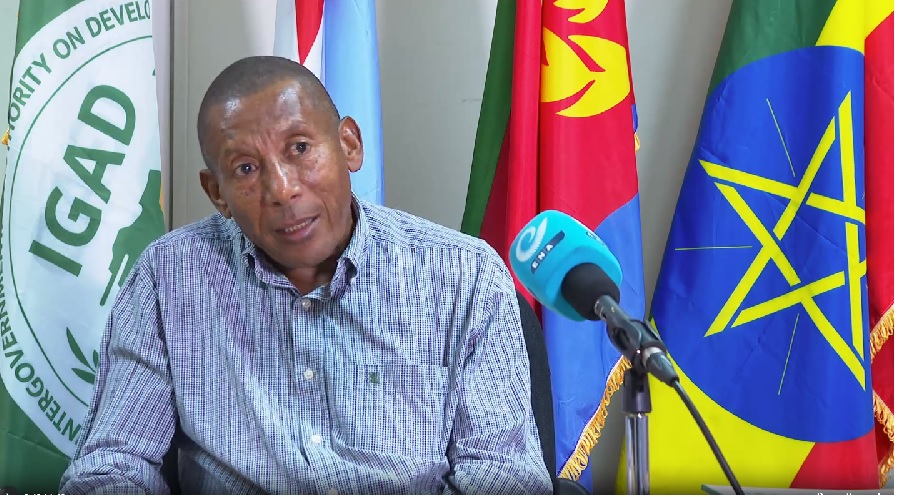IGAD Countries Urged to Mobilize Adequate Resources for Drought from Diverse Sources - ENA English
IGAD Countries Urged to Mobilize Adequate Resources for Drought from Diverse Sources

Addis Ababa April 12/2023/ENA/:-The Intergovernmental Authority on Development (IGAD) has called on countries in the East Africa region to mobilize adequate resources from the government treasury, the private sector, and development partners to respond to the drought situation in the region.
IGAD Drought Disaster Resilience and Sustainability Initiative Coordinator, Edmealem Shitaye, told ENA that starting from 2010 and 2011 some 47 million people have been highly food insecure and affected by drought.
Climate change phenomena like El Niño and La Niña have continued to affect the region, he added.
According to him, 70 percent of the IGAD region is arid and semi-arid, making it vulnerable to natural calamities like drought and flood.
He stated that the current drought is a result of lack of rain that has failed for the last fifth consecutive seasons. The pastoral and agro-pastoral areas of Ethiopia, Somalia, Kenya and other countries of the IGAD region have a huge number of populations affected by the drought.
“Somalia, I can say is totally affected; and in Kenya 23 out 47 counties have been affected by drought.”
In Ethiopia, South Omo of the southern region; Borena, Guji and the eastern part of Oromia region as well as some 9 zones of Somali region have been affected, he elaborated.
As a result, a significant number of the human population in the Horn of Africa is seriously affected and huge livestock resources have died. “This is very catastrophic,” he noted.
For Edmealem, the population requiring humanitarian assistance is currently very big in the region where the magnitude of the drought effect is colossal.
Therefore, countries in the IGAD region, donors, the private sector, and development partners should respond to the crises not like before and mobilize resources in a coordinated manner.
“I really appeal to the donors and development partners to reach to save human lives. More importantly, the IGAD region countries need to also mobilize adequate resources from the government treasury, the private sector, and development partners in a coordinated manner. Therefore, we can mitigate and take appropriate measures to respond to the drought episode in the countries.”
In this respect, the coordinator stressed the need for coordinated emergency response and mechanism to reach the needy at grassroots level.
He also urged the East African nations to mitigate the ongoing effects of drought and develop strong early warning systems.
“I strictly advise the countries to establish an emergency trust fund so that they can be mobilized whenever there is a need to address the vulnerable groups in a timely manner.”
He mentioned Ethiopia as a good example that has developed a strong early warning system.
However, Edmealem urged revisit of the system to bring tangible change on the ground as the early warning response is not active and dynamic.
On the other hand, IGAD Executive Secretary Workneh Gebeyehu said in a statement he issued last week that the consequences of the drought are characterized by severe water and pasture shortages.
He pointed out that 1 million people are displaced and over 10 million livestock and wild lives have died. With reduced crop and livestock production on top of these, food insecurity has been increasing.
Workneh also called on international partners and countries in the region to prevent future disasters from having such severe impacts.
“We solemnly call on the international community to help us prevent a major humanitarian disaster by committing requisite resources to save lives and livelihoods in the short-term, and continue investing in resilience building in the medium and long-term.”